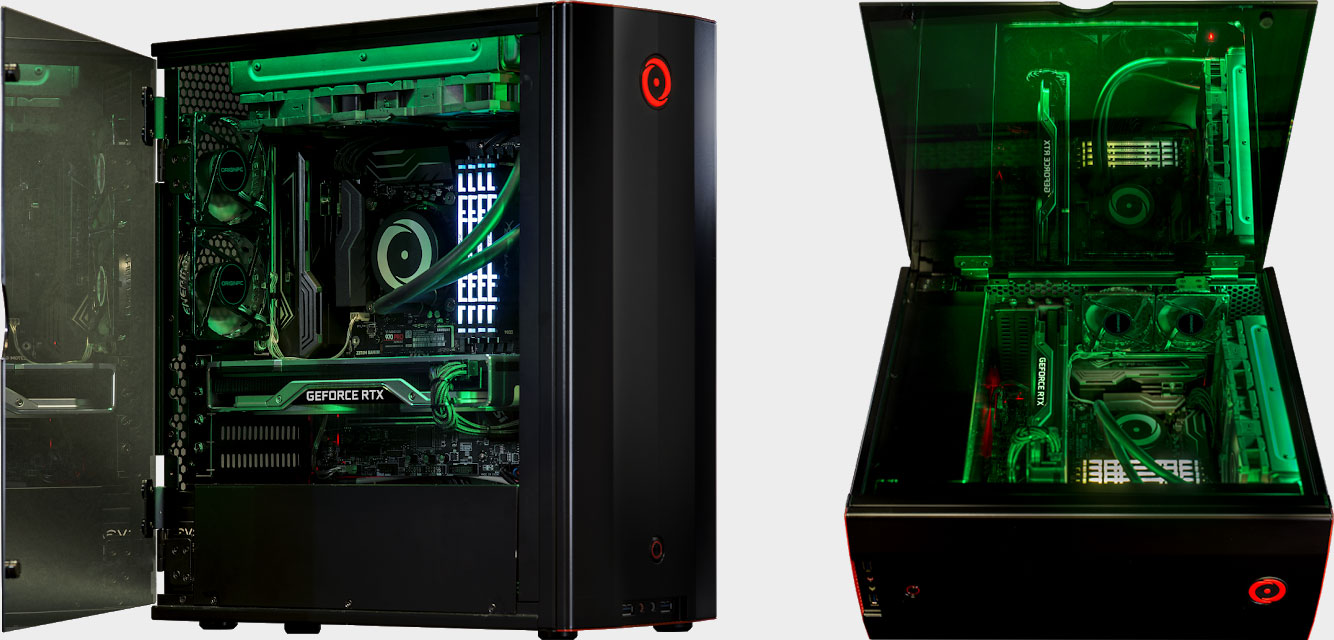Origin PC designed its own unique case for its compact desktop line
You can place Origin PC's Neuron and M-class desktops in three different orientations.

Origin PC is moving away from slapping its logo on third-party cases for its compact Neuron and M-class workstation desktops, and instead is now fitting them inside its own custom designed chassis.
Previously, you could configure a Neuron or M-class system in either a Phanteks Enthoo Evolv or Fractal Design Define Mini C enclosure. Both are suitable options for a small form factor PC, but in keeping consistent with Origin PC's other custom desktop product lines, including the Chronos, Millennium, and Genesis, the boutique builder decided to build a case from the ground up for its SFF systems.
"The all-new exclusive Neuron from Origin PC was born from a desire to create the perfect combination of power, styling, and features," said Kevin Wasielewski, OriginPC CEO and co-founder. "It’s our most unique chassis to date, offering Origin PC’s industry-leading performance, customization, and free 24/7 lifetime support in a space-efficient mid-tower."
We haven't seen the new case in person yet, but based on the press renders, the new chassis is styled similarly to Origin PC's other custom cases. It features an all-steel exterior and a tempered glass side panel. I spent some hands-on time with the Millennium earlier this year, and like that case, the tempered glass panel is held in place with low-power magnets for tool-less entry and removal. It's a slick design in my experience. Origin PC also offers custom HD UV printing and laser etching options, for an added fee of course.
The feet are also magnetic, and by extension removable. This is what gives the Neuron and M-class flexibility in how they're oriented.
"With removable magnetic feet, you can position the Neuron in 3 different orientations: 2 ways vertically or 1 way horizontally. The Neuron can be placed in your office, home theater, or desk in an orientation that fits your lifestyle," Origin PC says.
Pricing depends on how crazy you go configuring a Neuron or M-class system. Origin PC is carrying the latest parts from AMD, Intel, and Nvidia, so if you have the desire and deep enough pockets, you could deck out a system with a Core i9-9900K processor, 64GB of RAM, dual GeForce RTX 2080 Ti graphics cards, and oodles of storage. Or you can go with a saner (and far less expensive) configuration, with systems starting at around $1,200.
The biggest gaming news, reviews and hardware deals
Keep up to date with the most important stories and the best deals, as picked by the PC Gamer team.
Paul has been playing PC games and raking his knuckles on computer hardware since the Commodore 64. He does not have any tattoos, but thinks it would be cool to get one that reads LOAD"*",8,1. In his off time, he rides motorcycles and wrestles alligators (only one of those is true).


